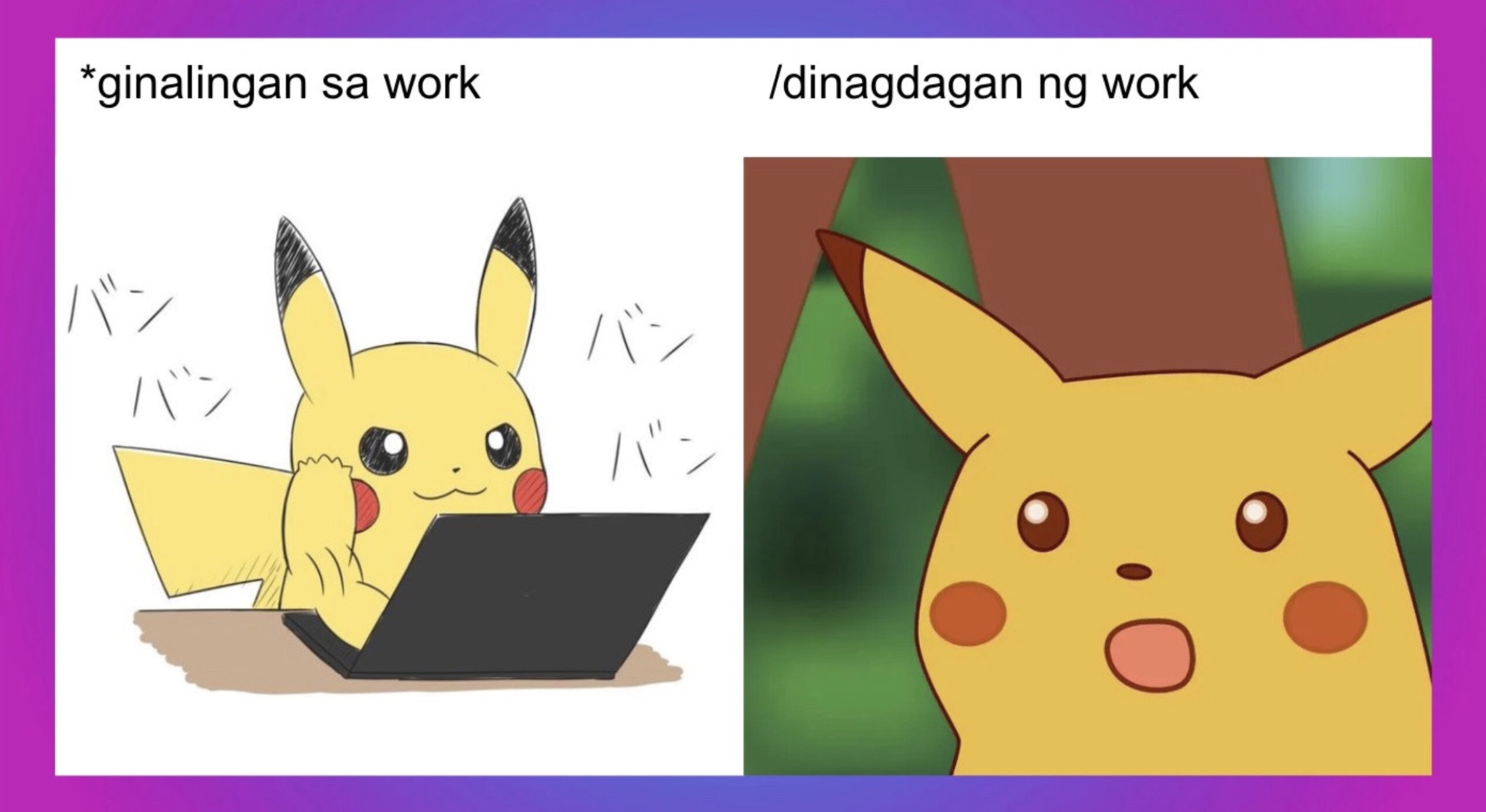Have you ever experienced giving your 100% on the job, so much so that your managers value you as an asset to the organization? That’s great, but here’s the catch. Because you’ve got what it takes and you always go the extra mile, you tend to be given more responsibilities and additional tasks to maximize your skill and contribution to the team. It is funny and not funny at the same time.
As a position, promotion, and performance metrics freak, who sometimes needs affirmation, you might feel good initially, knowing that your managers trust you for always delivering. Until this happens weekly, one by one, your managers whisper: “Hey, I know how swamped you are right now, but I believe that no one in this office could get this done so quickly and perfectly, except you. Can you prioritize this, stay after office hours, or you could work on this at home if you like.”
What time is it? It’s time to bid your work-life balance goodbye and say hello to “Performance Punishment.”
Performance punishment is a concern plaguing the modern workplace, whether you are in the BPO, Medical, Education, Construction, Media and Entertainment, Retail, Tourism, Sales, or whatever industry. It is the concept that employees who exceed their quota or perform above and beyond are given additional tasks or responsibilities (despite the employee’s own deadlines and targets), are expected to work longer hours, are subject to additional criticisms, and are assumed to always be of high performance. Given their exceptional productivity, these individuals are expected to continually surpass the managers’ projections and meet progressively high objectives, all for the good of the organization. This might seem implausible as evidence suggests that it can lead to serious problems such as employee burnout, decreased job satisfaction, lack of motivation, exhaustion, and a performance decline.
Performance Punishment is evident in an environment where someone is given more tasks just because they are performing better. While it might seem like a way to reward high performers, overloading them with extra tasks can lead to stress, decreased quality of work, and demotivation. If the additional tasks are aligned with their skills and interests, it could be a positive challenge. However, it’s crucial to also monitor their well-being and ensure they’re not overloaded. It’s important to create a balance between recognizing and rewarding top performers while also ensuring they have a manageable workload and acknowledging that these employees also want to live a life with a sense of normalcy, together with their families, loved ones, or even by themselves, without having to worry about not meeting the sales target or the expectations of the company.
Karlo and Lalaine (not their real names) are living testimonies of performance punishment. Karlo worked as an animator and game developer and he recalled: “I loved what I do, and for me, I was being paid for pursuing my passion so, I gave my best. I was new to the company then, and I believe I impressed the bosses and even the senior artists, and it felt good…at first. Until I recognized some red flags. My supervisor who is dissatisfied with a fellow animator’s work would drop the whole project down my lap and expected me to finish it the next day. The other senior artists began pressuring me to help them with their own projects, saying: “Ikaw naman ang pinakamagaling at masipag dito eh [You’re hard-working and the only one who performs well here],” he confessed. Karlo pleaded with the HR manager for help, but nothing changed in the work environment.
After a month, he resigned. “Akala ko masaya lang tulad ng dati akong paborito ng teacher namin noong high school kasi masipag akong mag-aral at medyo leader ako sa klase, kaya ako lagi inuutusan, taga-bitbit ng gamit, tinutulungan ko siya sa pag-decorate ng classroom [I thought it was fun at first like how I was the teacher’s pet during my high school days because I was studious, and I was somehow a class leader. So, the teacher always orders me around, carries her things, and was asked to help decorate the classroom],” Karlo laughed. “But in the workplace, it’s a totally different and difficult thing. I was already skipping meals and sleep just trying to catch my deadlines, the deadlines of my officemates, and the extra load my bosses gave me. I was overwhelmed and I realized it’s not healthy anymore, so I quit,” he smiled. Now, Karlo established his own gaming and animation company with some college friends.
Performance Punishment can also mean additional burden and supplemental responsibility to test an employee’s capability for his desired promotion, according to Lalaine, a mother of two, who works as a fast-food trainee-manager, and does the night shift. Being dependable and an excellent team player, her superiors always count on her as she accomplishes her tasks seamlessly and manages her shift efficiently. “I was loving it, initially, because I knew I was the favorite of the management and the team, and I was dying to be finally promoted as a full-fledged manager. However, when my shift would end at 7:00 in the morning, some managers would request for me to stay and help with the breakfast crowd. Some manager-trainees would call in late or sick and ask me if I could extend my shift to cover theirs! I would even receive calls during my rest days, asking if I could report for work as the restaurant needed extra manpower. And this happens all the time,” she said.
The situation affected her family, as she would come home exhausted, and sleep the whole day, only to wake up and prepare for another night shift, sacrificing quality time with them. The stress, sleepless nights, and fatigue took a toll on her health. After that health scare and a heart-to-heart talk with her family, Lalaine began politely saying no to such requests. “My family is everything, and I need to take care of myself—physically and mentally, so since then, I have politely refused these unreasonable requests,” she advised.
Karlo and Lalaine admitted that the feel-good chemicals in their brain were eventually replaced with exhaustion, burnout, and health problems—the downside of performance punishment. Those after-hours phone call you receive while making family dinner feel good, for a minute until reality slaps you in the face and makes you realize how a less competent colleague is enjoying an uninterrupted dinner, as if being rewarded for not being as good at their job. When the unfairness of such a situation dawns upon you, high performance turns into performance punishment as you are penalized with extra duties, inconsiderate expectations, and unjust burdens for being the better worker. Unfair? Dreadfully.
Several underlying social and cultural factors can lead to performance punishment including an organization that might have cultivated a culture of overworking and believe that working for longer hours is synonymous with dedication and commitment. However, it is also worth considering that the vicious cycle of overworking may impose pressure, especially on high-performing employees to meet the organization’s expectations so that they can be seen as valuable employees. While it gives employees a sense of pride as management recognizes outstanding workers, somehow it is also unfair for those workers who are doing good but not excellent.
Over-performers may also be held to a higher standard compared with the other employees, but at what cost? Unfair treatment, resentment from co-workers, and a sense of being ensconced in a level of excellence that is, first and foremost, unusual, and unachievable. A responsible employer knows that while it is essential to cultivate and nurture resilient leaders and talents who can inspire their teams and drive company growth, they also must keep their expectations in check. Punishing overachievers in the workplace could damage morale, deplete motivation levels, and reduce collaboration among team members, which could affect the company’s short- and long-term productivity.
Performance punishment is sometimes the reason why companies are losing their best people. When an employee realizes that he is penalized for doing exceptional work, he will be less driven to strive toward excellence and he will decide to maintain a level of mediocrity in his performance (limit his creativity and innovative work) or bailout of the company, resulting to loss of skilled and experienced employees. Individuals have their own private lives, which is an entirely different and detached aspect from the world of work. Destroying that balance will result in weakened employee morale and engagement, average improvement, reduced collaboration, and negative reputation and employer branding—all of which are detrimental to any company’s growth and success.
In retrospect, where does everyone go from here?
For employers and employees, communication, and transparency about (attainable) expectations are key. Every overwhelmed nurse, teacher, secretary, construction worker, office staff, sales agent, events coordinator, and production assistant should be able to convey and express the hardships he is experiencing, and employers need to hear them out—ears, mind, and heart. As an effective leader, it is not enough that one has the knowledge and expertise to spearhead an organization, one should also possess emotional intelligence and empathy, likened to as simple as listening to these cries for help to eventually break the cycle of punishing over-performers. Employers should require and expect achievable and realistic targets, encourage transparency and communication, regularly come up with feedback and recognition, champion work-life balance, and empower employees by supporting and nurturing their skills to advocate for fairness and equality.
Performance punishment is admittedly a complex matter for employers, but for employees who are right smack in the middle of such circumstances, the formula is extremely simple. Being blessed with a job, hitting that quota, getting that well-deserved promotion, and earning the admiration of our boss and co-workers…these are all good. But we must set boundaries, communicate our personal and professional goals, and just learn to graciously say no. It’s just about time that you do.
Other POP! stories that you might like:
10-year-old girl pens letters to her late grandparents, inspires ‘postbox to heaven’
So you’ve decided you want to move, work, and live abroad. What next?
‘The grand exit’: Understanding the rise and impact of ‘loud quitting’ in the workplace
Recent Family Feud PH episode proves that some are still falling behind in gender sensitivity
Filipino social media users call out state university for ‘insensitive’ remark toward NLE taker




